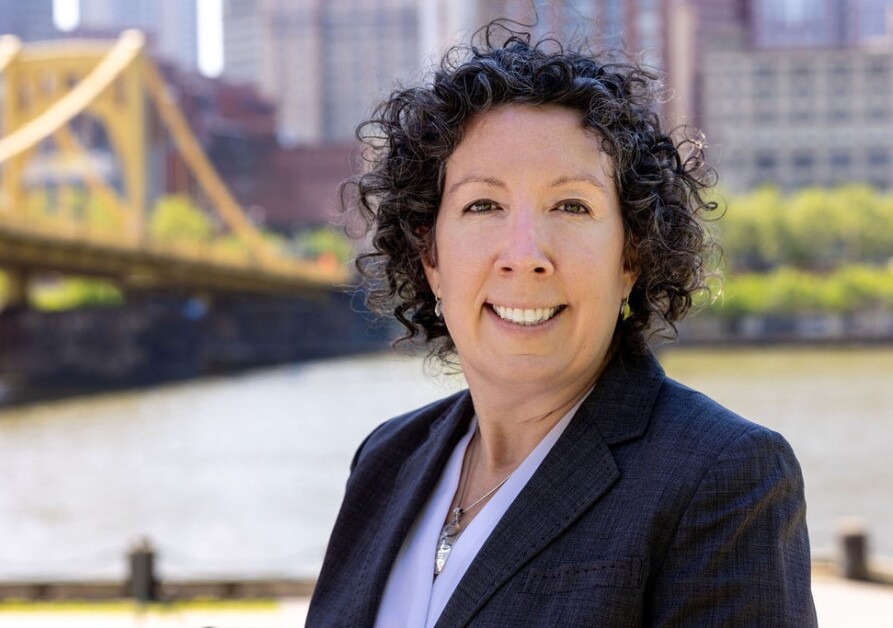Cara Jones, Co-Founder & CEO of Marinus Analytic – Interview Series
Cara Jones is the CEO and co-founder of Marinus Analytics, Cara is passionate about high tech implementations that maximize the efficiency, and by extension, impact, of agencies. Her desire to serve the public safety and human services sector was influenced by her father's career as a forensic social worker. She has managed the maturation and […] The post Cara Jones, Co-Founder & CEO of Marinus Analytic – Interview Series appeared first on Unite.AI.


Cara Jones is the CEO and co-founder of Marinus Analytics, Cara is passionate about high tech implementations that maximize the efficiency, and by extension, impact, of agencies. Her desire to serve the public safety and human services sector was influenced by her father's career as a forensic social worker. She has managed the maturation and commercialization of Marinus Analytics’s Traffic Jam software since the company's founding. She has a deep wealth of experience ranging from engineering autonomous robots, integration testing federal enterprise IT, and even coaching ice hockey, and leads Marinus's expansion across law enforcement, government, and corporate sectors.
Marinus Analytics is a woman-owned AI company dedicated to advancing public safety by tackling human trafficking, child exploitation, and cyber fraud. Its powerful AI tools, like Traffic Jam and Cyber Fraud (developed with IBM Watson), help law enforcement identify criminal networks and save thousands of investigative hours. By analyzing public data from exploitation hotspots, Marinus empowers authorities with actionable insights—without compromising privacy.
Can you tell us more about the founding of Marinus Analytics and what inspired you and your co-founder to create AI solutions for public safety?
What inspired us then, and continues to inspire us every day, is to be in service to frontline public safety champions of victim-centered trauma-informed policing. I clearly remember the first time I spoke with a federal agent who was searching for a missing and trafficked child, I knew it would be a joy to dedicate my career to helping professionals who specialize in this field. We find the motivation to support these agents, detectives, and analysts through our purposely built technology. Ultimately, credit is due to these unsung heroes who work tirelessly to protect the vulnerable from digitally enabled commercial sexual exploitation.
How did your background in robotics and AI research at Carnegie Mellon University influence the vision for Marinus Analytics?
The work at the Auton Lab (the research lab where Traffic Jam was conceived) has focused on social impact across different areas of government for over thirty years. These values are central to our work as we transitioned outside the university and became a vendor to public sector clients.
My business perspective on lean innovation was gained during my early career working for a robotics startup (which also came out of Carnegie Mellon University.) Their revenue model, which was novel then, for pay-as-you-go leasing of the robots motivated us to operate Traffic Jam as a Software-as-a-Service. I have always been attracted to the democratization of technology through this model. It reduces the financial risk of becoming an early adopter of a non-mainstream solution. Thankfully, we received generous support from the National Science Foundation to subsidize the research and development and to allow us to provide access through an affordable subscription.
Why Pittsburgh? How has the city supported the development of Marinus Analytics? What resources and advantages are presented by being there?
AI began in Pittsburgh, with Carnegie Mellon University as a trailblazer since the 1950s. Pittsburgh’s ecosystem includes over 100 companies focused on robotics and AI, with a workforce of 7,000+. It fosters cutting-edge advancements in AI solutions for public safety, transportation, healthcare, and much more, positioning itself as a leader in artificial intelligence and automation.
When I left for college, picking a major in computer engineering almost necessarily meant I would not return here to work. Thanks to the world-class AI programs at Carnegie Mellon University and its effect on the region’s economy, and to the Pittsburgh programs to support, fund, and mentor social entrepreneurs, I got to build my dream job in my hometown. We have recruited talented engineers from our local colleges, we built a sustainable business model with the advice of the Project Olympus campus incubator, and we got access to funding through UpPrize, Idea Foundry, and, most recently, the Richard King Mellon Foundation. We also have valued cheerleaders at the Pittsburgh Tech Council for innovation in the Pittsburgh region.
How has the company’s mission to combat human trafficking and exploitation evolved since its founding?
The mission has been consistent over the years. We will continue to innovate and promote victim-centered trauma-informed policing. What began here in Pittsburgh is now in use by public safety agencies across three continents, and this internationalization is expanding through our London office, which opened in 2023.
We support public safety agencies in countries where the legislation and culture around commercial adult services vary significantly, but the commonality is to proactively address exploitation within high-risk markets. We aim to continue to spread best practices across the geographically diverse professional community we serve, who are united in this common goal.
What does the recent $400K investment from the Richard King Mellon Foundation mean for Marinus Analytics, and how do you plan to use this funding to further your impact?
Receiving this investment from the Richard King Mellon Foundation is an incredible honor. This funding will allow us to expand our software for the benefit of child welfare organizations and broaden our positive impact on the fight against human trafficking and online harm. We are proud to partner with the RK Mellon Foundation in our shared goal to proactively scale and protect our most vulnerable populations.
Your AI solution Traffic Jam has saved an estimated 70,000 investigative hours. Can you walk us through how the platform helps law enforcement identify victims of human trafficking more efficiently?
Traffic Jam uses AI and automation to draw connections between advertising on adult service websites and missing person photos provided to law enforcement, where appearances are often drastically altered. In this example, AI can provide increased accuracy with greater efficiency than a human working manually. A victim can be rescued in days instead of what might have been months.
The time of our frontline champions is so much better spent out in the community serving people in need, forming relationships, and using their experience to proactively identify problematic situations. Their time would be wasted sitting at the computer, while automation can do that efficiently and accurately, freeing up a resource to make neighborhoods safer. It fundamentally helps them to become more proactive.
What ethical considerations are in place when developing AI-driven tools for public safety, especially regarding privacy and data security?
When we talk about investigating commercial sexual exploitation, we begin with the understanding it must be handled with sensitivity. The ethical considerations are what motivates our work. We diligently address data privacy and security measures during development and through our client relationships to ensure the service we are providing to police is not only an ethical solution but the best tool to disrupt commercial exploitation.
In what ways has Marinus Analytics partnered with law enforcement agencies and social service organizations to directly assist victims of human trafficking?
Marinus Analytics partners with public safety agencies worldwide, and we are excited to welcome a statewide child welfare agency as an early adopter of our technology in this critical space. With our MPWatch (Missing Persons Watch) technology, they are taking the lead in protecting at-risk children and locating missing minors. By collaborating with police and child welfare teams, we help ensure victims are identified quickly and resources are used efficiently. Our tools empower frontline professionals to act swiftly, making a direct impact in the fight to safeguard vulnerable individuals—just as we strive to do with all our partners.
How does your AI help public safety professionals identify trends and patterns that may otherwise go unnoticed in human trafficking investigations?
One of the challenges in human trafficking prosecutions is an over-reliance on the victim to provide evidence against the trafficker. It is a real burden to place on an individual who is often fearful for themselves and their family members. The technology can gather evidence and harness data to tell its own story of how exploitation occurred, identifying networks and trends that may point to organized crime. Without the assistance of purposely built technology, identifying those same networks may not be possible through a victim’s account or would otherwise take many more hours, dollars, and department resources. We hope this is a game-changer for future cases.
What new advancements in AI do you see on the horizon that could further enhance Marinus Analytics’ ability to disrupt human trafficking and organized crime?
The rapid evolution of open-source multimodal AI models represents a significant breakthrough in our fight against human trafficking. These advanced models are being trained on increasingly vast datasets, opening new frontiers to apply to our investigative capabilities. By leveraging these large-scale, open-source models, we can employ knowledge distillation techniques to create specialized, smaller models tailored to our specific use cases, using less training data than would otherwise be necessary. This approach is particularly valuable given the sensitive nature of our work, where access to extensive training data can be limited. These distilled models maintain much of the capability of their larger counterparts while being more efficient and deployable in resource-constrained environments.
Furthermore, these multimodal models are advancing our ability to generate more effective embeddings for both textual and visual data. This enhancement significantly improves information retrieval and cross-referencing capabilities, allowing us to identify patterns and connections that might otherwise remain hidden. For instance, we can more accurately match and cross-reference images and textual descriptions across various data sources, potentially uncovering criminal networks and trafficking operations more effectively. As these AI models continue to evolve, we anticipate even greater advancements in our ability to process and analyze complex, multimodal data streams, ultimately enhancing our capacity to disrupt criminal activities and protect vulnerable individuals.
Thank you for the great interview, and more importantly for all of the important work that you do. Readers who wish to learn more should visit Marinus Analytics.
The post Cara Jones, Co-Founder & CEO of Marinus Analytic – Interview Series appeared first on Unite.AI.













